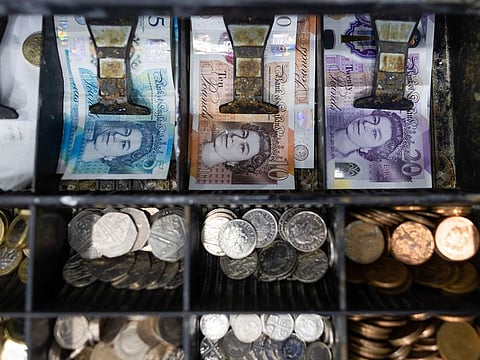British pound in recovery mode post-crash, but outlook isn't great yet: Deutsche Bank
Despite sterling climbing back above 1.16 vs. US dollar, Deutsche sees further pain ahead

The British pound has finally caught a break after the wild ride of recent weeks, but the outlook still looks anything but easy.
That's the view of Deutsche Bank AG strategist Shreyas Gopal, who warned nearly two months ago of a potential balance of payments crisis in the UK. After a tumultuous period for the currency - including a change of government - that risk has now abated, he wrote in a note to clients on Monday.
"We argue that the 'crisis' chapter on the UK can now close, with the pound now more likely to trade as a more normal currency," Gopal wrote. "Traditional positive correlations between yields and the currency can re-establish themselves."
After Liz Truss won the Conservative Party leadership campaign in September, Gopal set out concerns that the UK risked losing investor confidence given its large external financing needs, low real rates, and fiscal policy - all major headwinds for the pound.
Truss' subsequent proposal of unfunded tax cuts saw the currency drop to an all-time low against the dollar. Her later U-turn, and the promise of spending cuts under successor Rishi Sunak, means that public sector borrowing is now likely to add less downward pressure on the trade balance, according to Gopal.
Further pain for sterling?
Despite the currency climbing back above $1.16 in recent days, Deutsche sees further pain for sterling and remains short, targeting $1.08 by the end of the year. It fell as much as 1.2 per cent to $1.1476 on Monday.
"The recent newsflow has been more positive for the current account, but is unlikely to stop the external deficits remaining wider than usual and wider than other developed market peers over coming quarters," he wrote. The UK's external financing needs remain large and real yields also still look too low compared to other major currencies, he added.
Gopal also cited the risk that the Bank of England will hike interest rates less than expected on Thursday given growing risks to growth.
Money markets are no longer fully pricing a three-quarter point hike from policy makers, once seen as a certainty. The key rate would need to more than double at least to 5 per cent in order to post a "meaningful sterling rally", Gopal wrote.
Sign up for the Daily Briefing
Get the latest news and updates straight to your inbox



